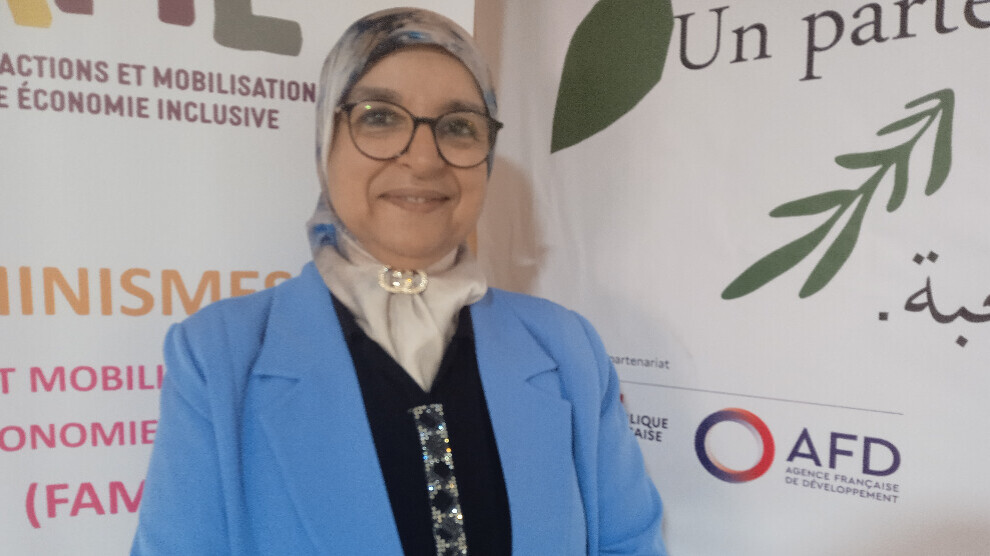Call on women to ‘stay at home’ sparks anger in Morocco
A political leader’s remarks urging Moroccan women to “stay at home” have sparked a wave of criticism, activists warn of a potential rollback of hard-won gains in gender equality.

HANAN HARET
Morocco — Amid a growing debate over the gender equality in the Middle East and North Africa (MENA), and against a backdrop of economic and social challenges that continue to reinforce traditional roles for women, feminist activists stress the need to defend hard-earned achievements and reject rhetoric that undermines women’s role in public life.
In Morocco, former Prime Minister Abdelilah Benkirane — long known for his conservative views — ignited a nationwide controversy after urging that women should “stay at home” and “look after their families”. Moroccan feminists denounced the statement of the prime minister, stressing that it is a regressive step and a threat to decades of progress, warning it entrenches marginalization and exclusion at a time when women still face structural barriers to empowerment and justice.
Although Benkirane sought to frame his comments as driven by economic and social concerns, the remarks have revived a troubling question: Is patriarchal discourse being repackaged under the guise of preserving the family and protecting women?
Oppression on women’s rights intensifies under various pretexts
The Tahadi Association for Equality and Citizenship (ATEC) said in a statement that such rhetoric cannot be understood in isolation from the broader regional context, where attempts to undermine women’s rights are increasing under cultural, religious, or even economic pretexts.
The association stressed that Benkirane’s remarks represent a political and ethnic regression, calling for adherence to constitutional principles and to international agreements ratified by Morocco, foremost among them the Convention on the Elimination of All Forms of Discrimination against Women (CEDAW).
In its statement, the association added: “The crisis in Moroccan society cannot be reduced to the presence of women in public spaces, nor to their economic participation, which is often coerced and inequitable. What is needed is to challenge public policies that have failed to provide fair economic alternatives or genuine social protection for women in need, rather than pushing them into the forced retreat to caregiving roles.”
‘Developing women’s skills is a must’
In an interview with NuJINHA, Samira Labid, a community activist specializing in women’s empowerment and psychological support, said, “Women must be supported, encouraged, and empowered to rely on themselves.” She points out that “rhetoric reinforcing the idea that a woman’s natural place is at home can profoundly influence many, leading them to reject education, employment, and personal development. We work directly with women and fully understand the psychological and social consequences these ideas leave behind.”
Samira Labid emphasized, “As members of civil society, we work to raise awareness among women about the value of education, employment, and financial independence, because women often only realize their importance once they lose them.” She added, “Our core mission is to restore women’s self-confidence and affirm that they are equal partners in the country’s development, not merely appendages to men’s roles.”
While women acknowledge the importance of family roles, the debate is no longer about “where a woman should be,” but rather about her freedom to choose and the removal of barriers—whether material or rooted in traditional social norms—that hinder her active participation in development.
Samira Labid clearly stated, “Developing women’s skills is a must; it is a necessity to ensure they are not confined solely to the home. While caregiving remains vital in raising future generations, we must guarantee women’s rights to education, employment, and participation, and recognize them as fully autonomous human beings—not subordinate to men or prisoners of their decisions.”
Fragile gains amid regional backlash
Although Benkirane’s remarks sparked criticism, they expose the fragility of some of Moroccan women’s rights gains, especially amid the absence of clear, gender-responsive public policies and weak female representation in decision-making positions.
This controversy is not isolated but part of a broader regional debate raising critical questions about women’s status amid the rise of populism, the decline of progressive discourse, and the persistence of conservative cultural norms—underscoring that advancing women’s participation in public life transcends formal equality, representing a vital challenge for a more just future for all.
